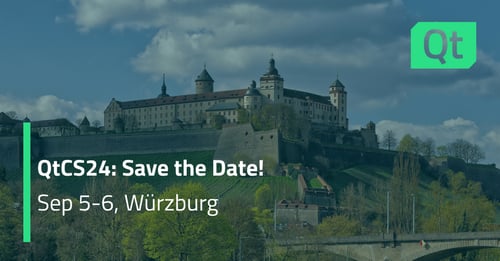Qt Project
September 12, 2011 by Lars Knoll | Comments
Over the past year we have been working with many of you to sort out how we make development of Qt even more inclusive and open. After exploring various options, we are now almost ready to go live with the new solution.
It’s taken a little longer than expected, but we are now very close to move hosting of Qt to a new domain: qt-project.org. The domain will be owned by a non-profit foundation whose only purpose is to host the infrastructure for the Qt project. We spent a lot of time collecting feedback from stakeholders who have an interest in the development of Qt, including both companies and open source projects. We wanted to make sure these parties would be happy with the final setup, and of course, willing to participate. While we couldn’t give everybody everything they wanted, we believe we can deliver a good solution.
Infrastructure
At launch time, we will have a web site, a wiki, a mailman server, the repositories, and our infrastructure to review and merge changes into Qt ready. The merging infrastructure is based on gerrit, an open source code review system on top of git. We have invested some time and resources to integrate gerrit with the continuous integration system we at Nokia run for Qt. The CI system gives us automated regression testing of changes on our major platforms. As we move forward the goal is to enable any new Qt ports to hook themselves in there.
We will continue to use the current Jira as our bugtracking tool. The Jira server will get transferred to the non-profit foundation, but this will most likely happen a bit after the public launch. In practice this means that bugreports.qt.nokia.com will get transferred to bugreports.qt-project.org. We will also establish a number of Qt development related mailing lists at qt-project.org for topics related to Qt development.
Decision making and role of the foundation
I want to make it very clear that the foundation will not steer the project in any way. The foundation is in place only to cover the costs of hosting and run the infrastructure. All technical decisions, as well as decisions about the project direction, will be taken by the community of Contributors, Approvers and Maintainers. For example this means that people in Nokia working on Qt will start working with Qt as an upstream project. Everyone will be using the same infrastructure, including mailing lists and IRC.
The governance model we will use for the Qt project has already been described in detail by Thiago in an earlier blog. Based on feedback we have fine-tuned the model, but it is pretty much the same as described earlier. We are currently finalizing the list of Approvers and Maintainers based on the current de-facto situation in the project. This means naturally that most of them come from Nokia, but it may surprise you that that around 15% of the initial Maintainers do not work for Nokia. We also have quite a few Approvers from companies and the community. While I know that Nokia will continue to invest heavily into Qt for bringing apps to the next billion Nokia users I do hope that more and more people will join the project to broaden the base of Approvers and Maintainers.
As a last point I wanted to talk about one thing that is fixed for the project and not going to go away. To contribute to Qt, you will have to sign a Contribution License Agreement with Nokia. We have put a lot of effort keeping the Qt codebase legally clear and clean, and this attention to detail will continue under the Qt Project. We have been over the last months reviewed the CLA extensively with many stakeholders and believe we have a solution that is as inclusive as possible for all companies and individuals that want to contribute to Qt. The CLA also enables the commercial ecosystem around Qt to continue to thrive and contribute to the project. Further, there are a number of legal obligations from Trolltech and Nokia that have to be taken into account.
Openness continued…
I am excited that we’re now taking another step in a journey that started many years ago. When I joined Trolltech in 2000, Qt was available under the QPL on X11. The same year we changed the license of Qt/X11 to GPL v2. In 2003, we made the Mac port available under GPL as well. Then in 2005, with the release of Qt 4.0, we started releasing all our versions under the GPL. Later the GPL v3 was added as an option. Then in 2009, now under Nokia, we made all of Qt available under the LGPL 2.1.
Opening up development more, as we announced in Jul 2010, was the next logical step and this one is now coming to conclusion. As a person who comes from the open source community, and experienced valuable contributions from the commercial Qt community as well, this is something I’m very happy to see and something I’ve been striving for during all the years I worked at Trolltech and Nokia.
So I’m really looking forward to open governance going live and to work together with all of you on future Qt versions. It’s been quite a journey getting here, but I personally believe that this is only just the start.
We believe the Qt Project will be one of the more transparent and meritocratic open governance models on the market. We are looking forward to the launch in time for Qt Developer days, but no later than October 17th.
You can read some supplementing info in Daniel’s blog
Blog Topics:
Comments
Subscribe to our newsletter
Subscribe Newsletter
Try Qt 6.7 Now!
Download the latest release here: www.qt.io/download.
Qt 6.7 focuses on the expansion of supported platforms and industry standards. This makes code written with Qt more sustainable and brings more value in Qt as a long-term investment.
We're Hiring
Check out all our open positions here and follow us on Instagram to see what it's like to be #QtPeople.


